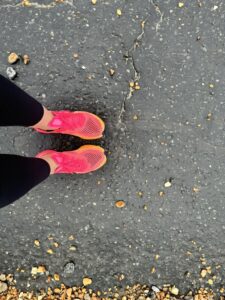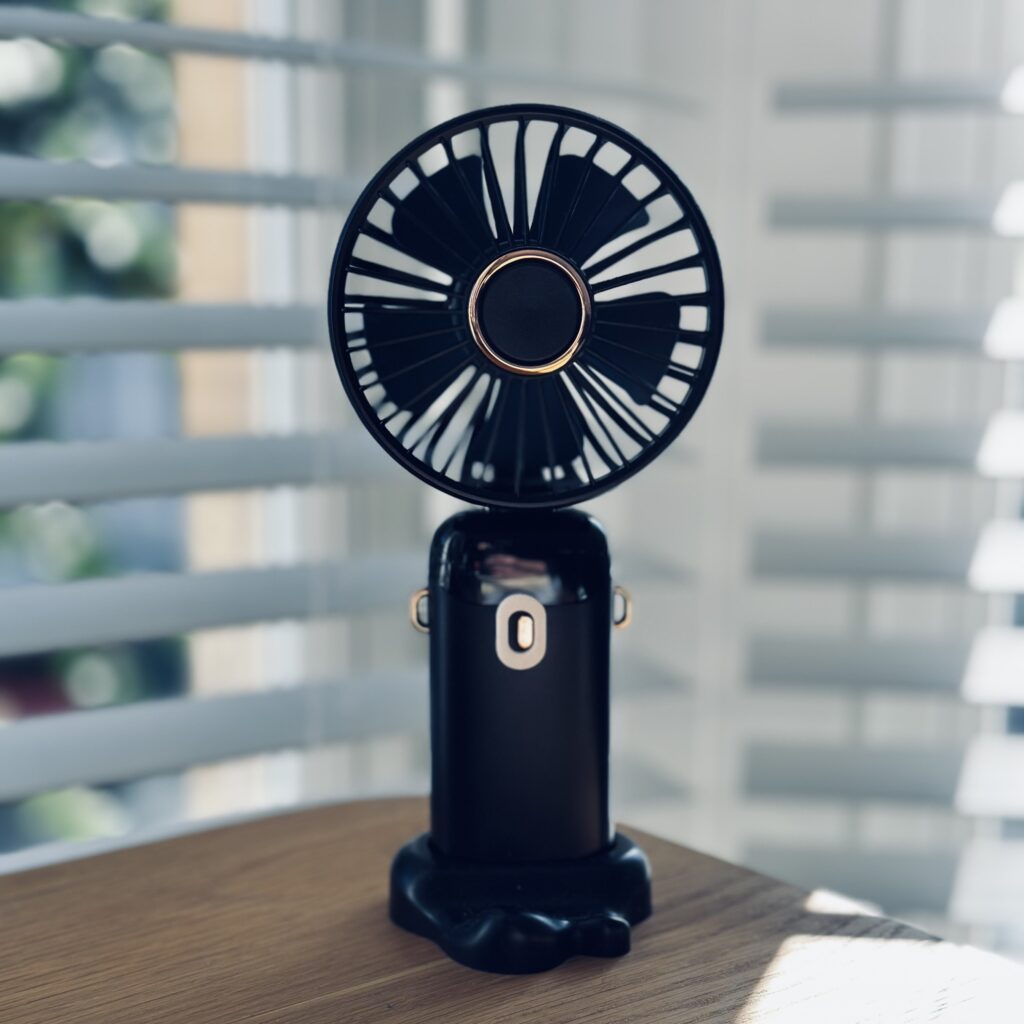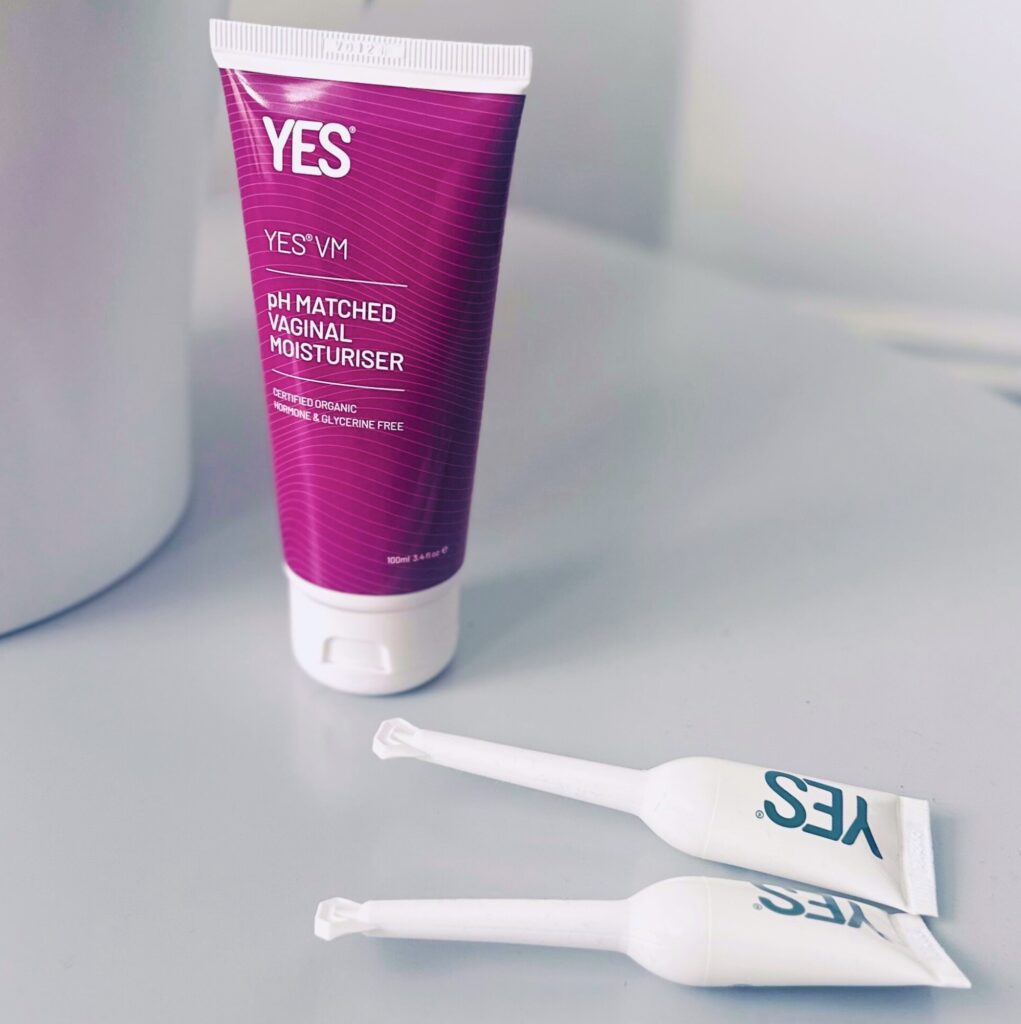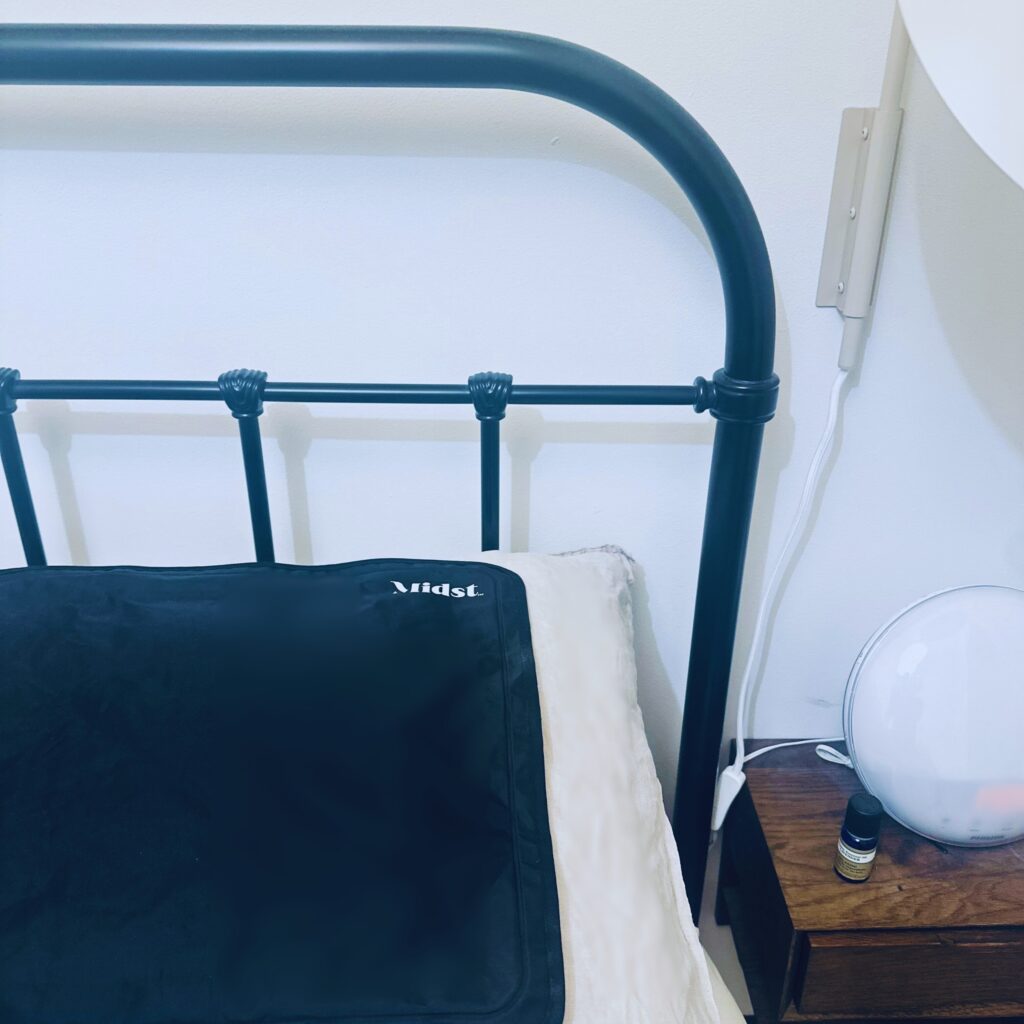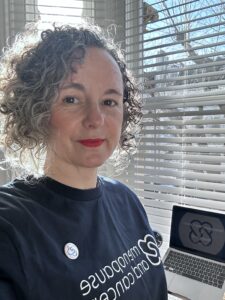 At the time of my breast cancer diagnosis, I was 46 and perimenopausal and very much enjoying hormone replacement therapy (HRT), not just enjoying, I bloody loved it. I would tell everyone I could about how amazing it was, I would rave about the benefits of HRT and still do.
At the time of my breast cancer diagnosis, I was 46 and perimenopausal and very much enjoying hormone replacement therapy (HRT), not just enjoying, I bloody loved it. I would tell everyone I could about how amazing it was, I would rave about the benefits of HRT and still do.
So, when I was told I had breast cancer, my first thought was ‘FFS that means no more HRT, how will I cope!?!’
Maybe NOT your typical response to a cancer diagnosis – but what is? I was devastated about the end of my relationship with HRT. Devastation was quickly replaced with the shock, realisation and panic that I had cancer. But even in those first days and weeks post-diagnosis I knew I would need to work out how to navigate symptoms of menopause without my beloved HRT and – what I also soon realised – without much support from my medical team at the time. (And I stress at the time – I now have an amazing oncologist who is very aware and educated on the impact of cancer treatments and menopause).
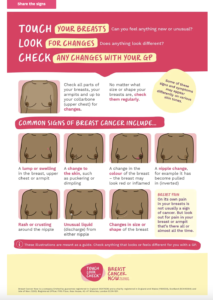 There are loads of different types of breast cancer, mine was unhelpfully hormone receptor positive – fuelled by oestrogen and progesterone. Before I go on, I do not think HRT caused my breast cancer and that’s something I feel passionately about. My diagnosis, I would soon also learn, meant that it was NOT advisable to take HRT and that my breast cancer treatment would include endocrine therapy (anti-hormone medicine) which removes all traces of oestrogen from my body.
There are loads of different types of breast cancer, mine was unhelpfully hormone receptor positive – fuelled by oestrogen and progesterone. Before I go on, I do not think HRT caused my breast cancer and that’s something I feel passionately about. My diagnosis, I would soon also learn, meant that it was NOT advisable to take HRT and that my breast cancer treatment would include endocrine therapy (anti-hormone medicine) which removes all traces of oestrogen from my body.
Whilst waiting for my mastectomy and just after, I had a brief spell with no hormone replacement therapy and no endocrine therapy. I had few, if any, menopause symptoms and I felt surprisingly ok (well – as ok as you can living with the scariness of cancer and navigating the aftermath of a mastectomy).
After my mastectomy, I learned I had a medium to high risk of recurrence which led to me having 4 rounds of chemotherapy coupled with Zoladex injections to shut down my ovaries. I was told I would need to continue to have these injections for 5 years. I was not expecting the onslaught of menopause symptoms which started almost instantly as a result of this drug. Even more frustratingly when I discussed the symptoms with a member of my healthcare team at the time, I did not expect to be fobbed off with ‘just take a supplement’. No one, NO ONE prepared me for this immediate, medically induced early menopause. Not even the dalliance with perimenopause before my diagnosis prepared me for what was to come.
I had intense, unstoppable hot flushes – I cannot tell you how often I would have to take off layers of clothes in a bid to cool down, even in the middle of winter. These would quickly be followed by cold sweats and I’d have to scramble to put layers on. At night, this cycle was worse – hot flushes then night sweats which really disrupted my sleep. The brain fog was also highly disruptive and at times I would lose words mid sentence – not great for confidence, especially at work. The burning mouth syndrome which I’d experienced during perimenopause returned and my tongue constantly felt like it had been burned by eating hot food. Once the chemotherapy was over and I was taking tamoxifen (which was later changed to an aromatase inhibitor) to reduce my recurrence risk further, I experienced low mood, low confidence, an underlying level of anxiety and did I mention the absolutely shocking sleep? Despite all of this, I received very little help at the time from the people, experts, than you would expect. I also knew, from my perimenopausal research, that the waitlist to see a doctor at specialist menopause clinic was ridiculously long, and would not help me in the here and now. So in my fury at the lack of support, I decided to find out how I could help myself.
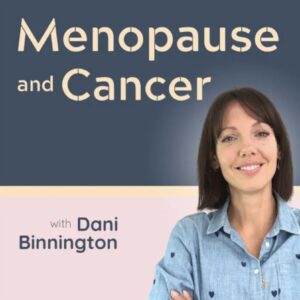 I found the Menopause and Cancer podcast by Dani Binnington initially – it features various experts and covers everything from non-hormonal treatment options, to sleep problems, vaginas (and combatting vaginal dryness), bone health, the psychological impact of menopause and cancer, the benefits of regular exercise, nutrition, it even discusses hormone replacement therapy and choices around that.
I found the Menopause and Cancer podcast by Dani Binnington initially – it features various experts and covers everything from non-hormonal treatment options, to sleep problems, vaginas (and combatting vaginal dryness), bone health, the psychological impact of menopause and cancer, the benefits of regular exercise, nutrition, it even discusses hormone replacement therapy and choices around that.
I joined a facebook group, also led by Dani, in the hope I could hear about how others would navigate their menopause after cancer. I intended to be a voyeur rather than a participant but was compelled to reach out to after my particularly disappointing appointment during chemotherapy. Dani had just set up a community interest company and I wanted to support.
The organisation helps thousands of women like me and like Dani, who founded it after her own experience and realisation that the majority of women are woefully unprepared and unsupported in managing their menopause as a result of cancer treatment. Menopause and Cancer brings together a community of patients with a community of healthcare experts. It supports those who have experienced all types of cancer treatments, not just breast cancer survivors and who are in menopause as a result.
Menopause and cancer – the organisation and its community have provided me with way more information and support than I would have been able to gain through my medical team. As well as the podcast, the online resources are an excellent tool to refer to at any time and there are events on and off line fronted by experts. It is definitely the go-to for anyone who finds themselves affected by menopause as a result of their cancer treatment (and those of you going through a natural menopause may also be able to learn a thing or two).
These are some of the things I’ve learned:
- Use anger and frustration in a positive way to help make a change – I am proud to say I’m now a director of Menopause and Cancer and looking forward to continuing to help the many, many people who experience menopause as a result of their cancer treatment (If you would like to support this cause, you can donate here). To quote Dani, we are turning our rage into a roar to support other people in similar situations.
- I have found huge benefit from various new communities and support groups, I have found them essential for healing and wellbeing – I find it so cathartic to meet people in a similar situation to me, to share experiences and learn from each other.
- Everyone has a choice – whether that be to take or not to take their endocrine treatment and to take or not to take HRT after breast cancer. I think everyone needs to balance their own risk levels and quality of life and everyone is unique and your medical team should be there to help you.
- Everyone has a voice – some of the drugs prescribed to many women after a diagnosis of breast cancer can have significant side effects, its really important that if you do experience these then you speak to your healthcare provider. There are different drugs available. For example, I was prescribed Letrozole an aromatase inhibitor, alongside Zoladex. I approached it with an open mind, but 4 months in the low mood, joint aches, sleep issues, hot flushes were just too much, so I’m now taking another drug called Exemestane also an aromatase inhibitor – its early days but so far I’m experiencing fewer side effects.
- Do your research – learn about the medicine you’re prescribed, the possible side effects and the impact it can have on your long-term health – for example if you’re prescribed aromatase inhibitors and/or zoladex, there is a risk of bone loss and a risk of osteoporosis, so you should be given a bone density scan every 2 years.
- And there’s always things you can do to help manage specific symptoms and combat the impact to long-term health – I’m trying to fall in love with them as much as I did with HRT

- Lifestyle changes – I eat a healthy diet most of the time, I enjoy regular exercise (I love to run and I’m lifting weights), I’m trying to maintain a healthy weight.
- Complementary therapies – acupuncture, reflexology, aromatherapy (which I’m learning more about).
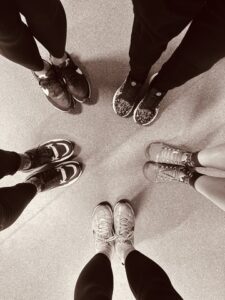
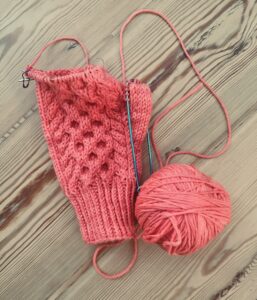
- Self care – moments of indulgence, relaxation techniques – sometimes a bar of Tonys, sometimes a hot chocolate made in my velvetiser, sometimes a bath with a calming blend of essential oils
- Cold water therapy – ok so I haven’t quite dunked myself in the sea, but I’ve turned the tap cold at the end of a shower – its helped with the hot flushes for sure.
- And although I think there are far too many products proclaiming to help menopausal women, I have tried these….
What are you trying to combat menopause symptoms? I’d love to hear from you, comment below.

